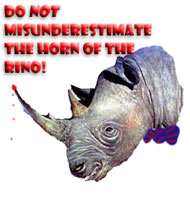October 04, 2004
Musickal Posting for the O.F.
A NYTimes review of a new staging of Mozart's Magic Flute, directed by Julie Taymor, who directed the Broadway production of Disney's Lion King.
Despite the involuntary cringing that this line initially induced, I was pleasantly surprised. Ms. Taymor seems to have a ready grasp of opera in general and this one in particular:
"I think to go symbolic without being human is ridiculous," Ms. Taymor said after a recent rehearsal. "It's all got to be grounded in these very basic emotions, but that's what fairy tales and myths are based on anyway." When asked how those emotions are conveyed, she took a position that would warm the heart of a composer but not a librettist: "It's in the music," she said.Ms. Taymor calls the plot of the opera a "classic coming-of-age tale" that also depicts the struggle between the forces of rationality and irrationality and the passage of the "unenlightened" young lovers, Pamina and Tamino, into enlightenment.
"If these young people can get through their trials and their love is pure enough, then they're prepared to go on as a couple into the world," she said. "And because there's been such a separation of male and female - in the beginning of this world of 'The Magic Flute,' the Queen of the Night and her ladies are in a darkness, the men, the priests, Sarastro are in light - it's an incomplete world. So the opera is about completion."
. . . . .
"What is opera?" Ms. Taymor asked. "It's storytelling of large, epic emotions and landscape. You have dialogue, you have communication through language, but on top of that it's stylized, because it's musical. When I say the word 'stylized,' that doesn't mean it's not real. It always comes from a very real place. But it becomes heightened through the music, and when music heightens the emotions, the physicality has to match that."
To that end, she will have singers move to match musical lines, beyond the usual stock operatic gestures, as a way of carving out what she calls "a musical landscape."
That makes a great deal of sense to me and, indeed, can be applied in terms of any opera I can think of off the top of my head. And I think her particular brand of illusory staging, discussed at greater length in the review, works in the context of this opera with its showcase of magic, fantasy and otherworldiness.
Her remarks about the grounding of myth and fairy tale in the reality of basic human emotions reminds me of a line that I once half heard, probably remember incorrectly and cannot attribute to anyone (although I associate it with Chesterton) about a fairy tale being a poetic presentation of a spiritual truth. Concentrating on the music as the basis for emotional and dramatic drive, as opposed to the libretto, allows one to use the form to delve much deeper into this poetic world than otherwise.
Yips! to ACD.
Posted by Robert at October 4, 2004 03:30 PM | TrackBackThe fairy tale=spiritual truth idea sounds a lot like C.S. Lewis talking about George Macdonald. Of course, Macdonald also had a big influence on Chesterton, and Chesterton on Lewis...
Posted by: Chan S. at October 4, 2004 08:58 PM "It's in the music." Right on, especially in this particular opera, which is almost the only one better heard than seen.
Fortunately, the music is some of Mozart's best and transcends anything that might be ocurring on stage. In fact, if one listens to a performance of "Der Zauberflote", one can imagine almost any heroic libretto, i.e. "Fidelio". This is almost "pure" music and the mind can create many scenarios to fit it - one of its great attributes.




